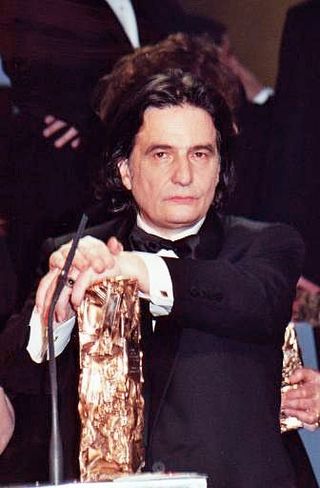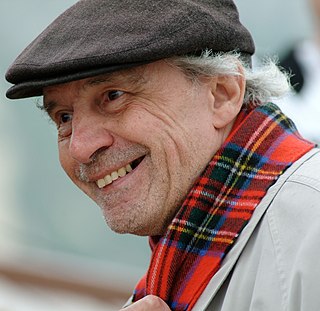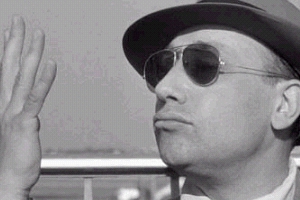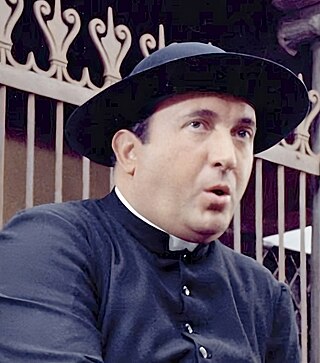Related Research Articles

French cinema consists of the film industry and its film productions, whether made within the nation of France or by French film production companies abroad. It is the oldest and largest precursor of national cinemas in Europe; with primary influence also on the creation of national cinemas in Asia.

Jean-Luc Godard was a Franco-Swiss film director, screenwriter, and film critic. He rose to prominence as a pioneer of the French New Wave film movement of the 1960s, alongside such filmmakers as François Truffaut, Agnès Varda, Éric Rohmer and Jacques Demy. He was arguably the most influential French filmmaker of the post-war era. According to AllMovie, his work "revolutionized the motion picture form" through its experimentation with narrative, continuity, sound, and camerawork. His most acclaimed films include Breathless (1960), Vivre sa vie (1962), Contempt (1963), Band of Outsiders (1964), Alphaville (1965), Pierrot le Fou (1965), Masculin Féminin (1966), Weekend (1967) and Goodbye to Language (2014).

Sylvie Vartan is a Bulgarian-French singer and actress. She is known as one of the most productive and tough-sounding yé-yé artists. Her performances often featured elaborate show-dance choreography, and she made many appearances on French and Italian TV.

Jean-Pierre Léaud, ComM is a French actor, known for playing Antoine Doinel in François Truffaut's series of films about that character, beginning with The 400 Blows (1959). He also worked several times with Jean-Luc Godard and Aki Kaurismäki, as well as with other notable directors such as Jean Cocteau, Pier Paolo Pasolini, Bernardo Bertolucci, Catherine Breillat, Jerzy Skolimowski, Agnès Varda, Jacques Rivette, etc. He is a significant figure of the French New Wave.
The New Wave, also called the French New Wave, is a French art film movement that emerged in the late 1950s. The movement was characterized by its rejection of traditional filmmaking conventions in favor of experimentation and a spirit of iconoclasm. New Wave filmmakers explored new approaches to editing, visual style, and narrative, as well as engagement with the social and political upheavals of the era, often making use of irony or exploring existential themes. The New Wave is often considered one of the most influential movements in the history of cinema.

Jacques Rivette was a French film director and film critic most commonly associated with the French New Wave and the film magazine Cahiers du Cinéma. He made twenty-nine films, including L'Amour fou (1969), Out 1 (1971), Celine and Julie Go Boating (1974), and La Belle Noiseuse (1991). His work is noted for its improvisation, loose narratives, and lengthy running times.

Jean-Pierre Grumbach, known professionally as Jean-Pierre Melville, was a French filmmaker. Considered a spiritual father of the French New Wave, he was one of the first fully-independent French filmmakers to achieve commercial and critical success. His works include the crime dramas Bob le flambeur (1956), Le Doulos (1962), Le Samouraï (1967), and Le Cercle Rouge (1970), and the war films Le Silence de la mer (1949) and Army of Shadows (1969).
Yé-yé or yeyé was a style of pop music that emerged in Western-Southern Europe in the early 1960s. The French term yé-yé was derived from the English "yeah! yeah!", popularized by British beat music bands such as the Beatles. The style expanded worldwide as the result of the success of figures such as French singer-songwriters Sylvie Vartan, Serge Gainsbourg and Françoise Hardy. Yé-yé was a particular form of counterculture that derived most of its inspiration from British and American rock and roll. Additional stylistic elements of yé-yé song composition include baroque, exotica, pop, jazz and the French chanson.

Claude Léon Auguste Piéplu was a French theater, film and television actor. He was known for his hoarse and frayed voice.

Maurice Ronet was a French film actor, director, and writer.

The Mother and the Whore is a 1973 French film directed by Jean Eustache and starring Jean-Pierre Léaud, Bernadette Lafont and Françoise Lebrun. An examination of the relationships between three characters in a love triangle, it was Eustache's first feature film and is considered his masterpiece. Eustache wrote the screenplay drawing inspiration from his own relationships, and shot the film from May to July 1972.
Events from the year 1932 in France.

Jacques Dynam was a French film actor. He appeared in more than 150 films between 1942 and 2004, among which the Fantomas saga.
Xavier Gélin was a French actor and film producer, and son of French film star Daniel Gélin and actress-producer Danièle Delorme. Through his father, he was a half-brother of Fiona Gélin and Maria Schneider, also actresses. Gélin, a French actor and a mainstay of popular French cinema for more than three decades, died of cancer at the age of 53.

Jean-Jacques Debout is a French singer-songwriter. In addition to his albums, he has written for a number of renowned artists like Johnny Hallyday, Sylvie Vartan, Dalida, and Chantal Goya. He has also composed a great number of films.
Nancy Holloway was an American jazz, pop and soul singer and actress who was popular during the 1960s in France, where she continued to perform and live.

This is a bibliography of articles and books by or about the director and film critic Jacques Rivette.

Jean-Pierre Kalfon, known professionally as Hector was a French singer.
Sophie Hecquet, often credited mononymously as Sophie, was a French pop singer and radio and television presenter.
Annette Wademant (1928–2017) was a Belgian screenwriter active in the French film industry. She was married to the director Michel Boisrond.
References
- ↑ Cahiers du cinéma. Éditions de l'Étoile. 1964.
- ↑ Gabriella Lukács (15 July 2010). Scripted Affects, Branded Selves: Television, Subjectivity, and Capitalism in 1990s Japan. Duke University Press. pp. 231–. ISBN 978-0-8223-9323-8.
- ↑ Roberto Poppi (2007). I film: Tutti i film italiani dal 1960 al 1969. Gremese. ISBN 978-88-8440-503-6.
- ↑ Phil Powrie (29 June 2017). Music in Contemporary French Cinema: The Crystal-Song. Springer. pp. 246–. ISBN 978-3-319-52362-0.
- ↑ Jean-Emmanuel Deluxe (18 November 2013). Yé-Yé Girls of '60s French Pop. Feral House. pp. 115–. ISBN 978-1-936239-72-6.